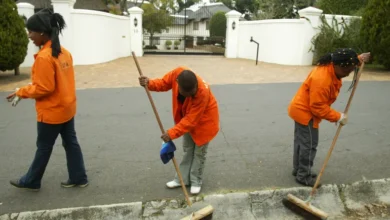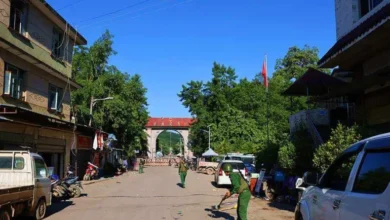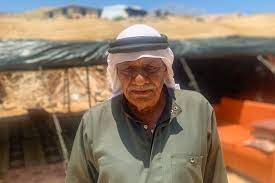Poor countries win fight for climate cash at COP28
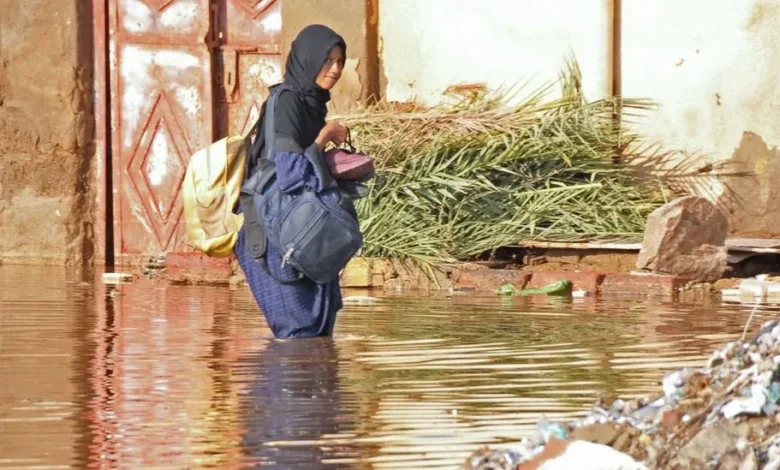
In a surprise that has lit up COP28, delegates have agreed to launch a long-awaited fund to pay for damage from climate-driven storms and drought.
Such deals are normally sealed last minute after days of negotiations.
COP28 president Sultan al-Jaber shook up the meeting by bringing the decision to the floor on day one.
The EU, UK, US and others immediately announced contributions totalling around $400m for poor countries reeling from the impacts of climate change.
It’s hoped the deal will provide the momentum for an ambitious wider agreement on action during the summit.
The stakes for that couldn’t be higher: the day began with stark warnings from the UN chief that “we are living through climate collapse in real time”.
António Guterres said the news that it’s “virtually certain” 2023 will be the hottest year on record should “send shivers down the spines of world leaders”.
Three decades after the idea was first mooted, the ‘loss and damage’ cash agreement was greeted with sustained applause on the conference floor.
It was seen as a smart move by the UAE, which has been criticised in the run up to the COP, after the BBC reported on Monday that leaked briefing documents revealed plans by the United Arab Emirates to discuss fossil fuel deals with 15 nations.
“It’s a very clever way to open the conference on the part of the UAE,” said Prof Michael Jacobs from the University of Sheffield and an observer at these talks.
“They have gotten in the very first session, one of the most important parts of this whole conference agreed, a very contentious part, the United States was not happy just a few weeks ago with the text on this loss and damage fund, and it’s agreed to it today.”
Loss and damage refers to the impacts that many countries suffer from climate-related weather events.
While funding has been provided to help countries adapt to rising temperatures, and to aid their efforts to rein in their emissions, no money has been forthcoming to help with the destruction caused by storms and droughts.
The idea of finding cash for these losses was first introduced in the 1990s.
For decades, richer countries fought tooth and nail against the idea of such a fund, wary of having to pay “compensation” for historic carbon emissions.
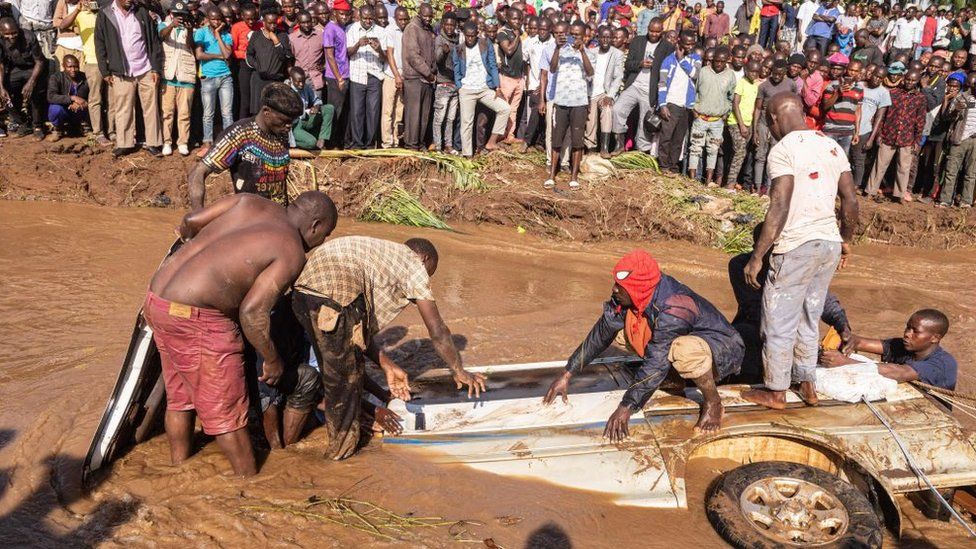
Last year at COP27 in Egypt, the moral force of the argument won the day and countries agreed to set up a fund.
Over the past 12 months countries had argued about the rules, where the fund should be located and who should pay in.
A tentative agreement was reached a few weeks before this gathering in Dubai.
Any such deal would normally have to be accepted by all countries in a plenary session, where negotiators can go through the text with a fine-tooth comb, often leading to major arguments.
This usually happens at the end of a COP after days and nights of wrangling.
“We have delivered history today,” Mr Jaber told delegates as the motion was passed without a fight.
Immediately the UAE made a pledge of $100m as did Germany.
The US says it will pay in $17m, providing it can find agreement with Congress. They wanted all countries to know that paying in didn’t mean they accepted that the fund was about reparations for historic emissions.
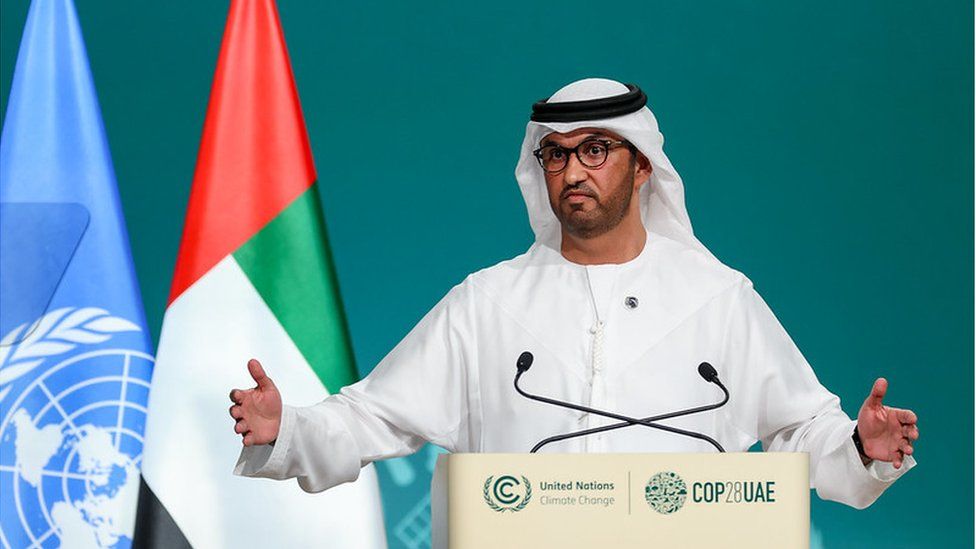
“We have been working very, very closely with other transitional committee members this entire year in order to design an effective fund that is based on cooperation and does not involve liability or compensation,” said US Special Climate Envoy, John Kerry.
The UK promised £60m to the fund. Campaigners said it was a small step in the right direction.
“It is encouraging to see that the UK Government is committed to making the Loss and Damage Fund a reality, but this pledge is simply not enough and crucially, it’s not new money,” said Chiara Liguori, Oxfam’s Senior Climate Justice Policy Advisor.



